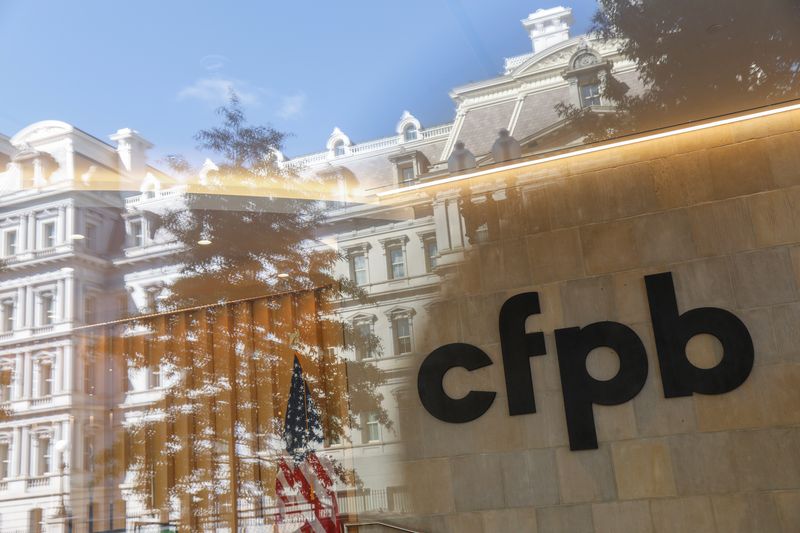By Jody Godoy
(Reuters) -A federal judge has ruled that the U.S. Consumer Financial Protection Bureau (CFPB) does not have broad authority to tackle discriminatory banking practices, handing a win to financial industry groups that sued the regulator.
The American Bankers Association, the U.S. Chamber of Commerce and several other industry groups in a lawsuit filed in federal court in Texas in September argued that Congress had not authorized the agency to root out discrimination.
U.S. District Judge J. Campbell Barker ruled in favor of the groups on Friday, saying the Dodd–Frank Act, which created the CFPB, treats discrimination and unfairness as distinct concepts. The ruling bars the CFPB from enforcing the policy against the trade groups' members.
The CFPB via a spokesperson on Monday said it was reviewing the decision and considering options for an appeal.
Federal law prohibits unfair acts and practices that cause consumers "substantial and unavoidable harm," the CFPB said in a statement.
"In our view, it is common sense that discrimination can meet that standard, regardless of whether it affects people due to their race, their national origin or the exercise of their religious liberties," the agency said.
Rob Nichols, head of the American Bankers Association, in a statement said the group hopes that the ruling sends a "message" to the agency.
"Unfortunately, this CFPB has too often chosen to ignore the law and the will of Congress, forcing us to seek relief in court," he said.
The CFPB in March 2022 announced that it would examine consumer financial institutions' practices for illegal discrimination as part of its broader mandate to combat unfair practices.
The industry groups said the CFPB unlawfully stretched that mandate to include discrimination, expanding its authority beyond existing fair lending laws.
The agency directed its examiners to review financial firms' policies that exclude individuals from products or services, or those that offer products or services in an unfairly discriminatory manner.
The CFPB has not yet brought an enforcement action under the new effort, but in June said it was "looking into potential discriminatory conduct."
The industry groups argued that the CFPB acted arbitrarily by scrutinizing "disparate impacts" on consumers. That legal theory allows regulators to go after practices that may appear neutral but adversely affect one group of people more than others.
They also said that an October 2022 ruling by the 5th U.S. Circuit Court of Appeals invalidated the agency's authority altogether.

The CFPB has appealed that decision to the U.S. Supreme Court, arguing that the Constitution does not limit how Congress provides funding for agencies.
The case is Chamber of Commerce et al. v. CFPB, No. 22-00381, U.S. District Court, Eastern District of Texas.